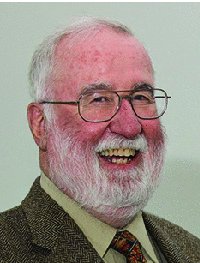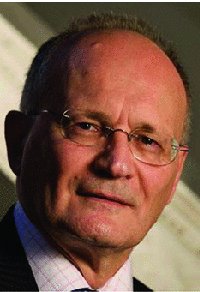

EDITED BY
John W. D. McDonald
Professor, Department of Medicine, Schulich School of Medicine, Western University
Honorary Consultant, Department of Medicine, London Health Sciences Centre
Editor, Cochrane Inflammatory Bowel Diseases and Functional Bowel Disorders Review Group
Lead Central Reader, Central Image Management Systems, Robarts Clinical Trials
London, Ontario, Canada
Brian G. Feagan
Professor of Medicine and Epidemiology and Biostatistics
Division of Gastroenterology, Department of Medicine;
Robarts Clinical Trials, Robarts Research Unit;
Department of Biostatistics and Epidemiology
University of Western Ontario
London, Ontario, Canada
Rajiv Jalan
Professor of Hepatology
Head, Liver Failure Group
Institute for Liver and Digestive Health, Division of Medicine
UCL Medical School
Royal Free Campus
London, UK
Peter J. Kahrilas
Professor of Gastroenterology and Hepatology
Department of Medicine
Feinberg School of Medicine, Northwestern University
Chicago, Illinois, USA

This edition first published 2019
© 2019 John Wiley & Sons Ltd
Edition History
1e, 2010; 2e, 2004; 3e, 1999 by Blackwell Publishing Ltd
All rights reserved. No part of this publication may be reproduced, stored in a retrieval system, or transmitted, in any form or by any means, electronic, mechanical, photocopying, recording or otherwise, except as permitted by law. Advice on how to obtain permission to reuse material from this title is available at http://www.wiley.com/go/permissions.
The right of John W. D. McDonald, Brian G. Feagan, Rajiv Jalan, and Peter J. Kahrilas to be identified as the authors of the editorial material in this work has been asserted in accordance with law.
Registered Office(s)
John Wiley & Sons, Inc., 111 River Street, Hoboken, NJ 07030, USA
John Wiley & Sons Ltd, The Atrium, Southern Gate, Chichester, West Sussex, PO19 8SQ, UK
Editorial Office
9600 Garsington Road, Oxford, OX4 2DQ, UK
For details of our global editorial offices, customer services, and more information about Wiley products visit us at www.wiley.com.
Wiley also publishes its books in a variety of electronic formats and by print-on-demand. Some content that appears in standard print versions of this book may not be available in other formats.
Limit of Liability/Disclaimer of Warranty
The contents of this work are intended to further general scientific research, understanding, and discussion only and are not intended and should not be relied upon as recommending or promoting scientific method, diagnosis, or treatment by physicians for any particular patient. In view of ongoing research, equipment modifications, changes in governmental regulations, and the constant flow of information relating to the use of medicines, equipment, and devices, the reader is urged to review and evaluate the information provided in the package insert or instructions for each medicine, equipment, or device for, among other things, any changes in the instructions or indication of usage and for added warnings and precautions. While the publisher and authors have used their best efforts in preparing this work, they make no representations or warranties with respect to the accuracy or completeness of the contents of this work and specifically disclaim all warranties, including without limitation any implied warranties of merchantability or fitness for a particular purpose. No warranty may be created or extended by sales representatives, written sales materials or promotional statements for this work. The fact that an organization, website, or product is referred to in this work as a citation and/or potential source of further information does not mean that the publisher and authors endorse the information or services the organization, website, or product may provide or recommendations it may make. This work is sold with the understanding that the publisher is not engaged in rendering professional services. The advice and strategies contained herein may not be suitable for your situation. You should consult with a specialist where appropriate. Further, readers should be aware that websites listed in this work may have changed or disappeared between when this work was written and when it is read. Neither the publisher nor authors shall be liable for any loss of profit or any other commercial damages, including but not limited to special, incidental, consequential, or other damages.
Library of Congress Cataloging-in-Publication Data:
Names: McDonald, John W. D., editor. | Feagan, Brian G., editor. | Jalan, Rajiv, 1962– editor. | Kahrilas, Peter, editor.
Title: Evidence-based gastroenterology and hepatology [electronic resource] / edited by John W. D. McDonald, Brian G. Feagan, Rajiv Jalan, Peter Kahrilas.
Description: Fourth edition. | Hoboken, NJ : Wiley-Blackwell, 2019. | Includes bibliographical references and index. |
Identifiers: LCCN 2018046910 (print) | LCCN 2018047954 (ebook) | ISBN 9781119211396 (Adobe PDF) | ISBN 9781119211402 (ePub) | ISBN 9781119211389 (hardcover)
Subjects: | MESH: Gastrointestinal Diseases--diagnosis | Gastrointestinal Diseases--therapy | Liver Diseases--diagnosis | Liver Diseases--therapy | Evidence-Based Medicine--methods
Classification: LCC RC816 (ebook) | LCC RC816 (print) | NLM WI 195 | DDC 616.3/3--dc23
LC record available at https://lccn.loc.gov/2018046910
Cover Design: Wiley
Cover Image: © David Litman/Shutterstock; © magicmine/iStock.com
We dedicate this edition to the authors Dr. David Sackett and Professor Andrew Burroughs.

David Sackett
Dr. David Sackett, in his final year as a medical student, David “Dave” Sackett was involved in the care of a young patient with acute viral hepatitis, who was being managed with the conventional treatment of enforced bedrest. Dave read a small, simple randomized trial of bedrest for this disease and realized that there was no evidence for this approach. He was always brave and sometimes unconventional, and he released the young man from bedrest, defying convention in favor of evidence. This started his 60-year career in promoting the approach for which he initially coined the term “critical appraisal” and which one of his students, Dr. G. Guyatt, eventually named “evidence-based medicine.” He promoted this approach very strongly from his primary academic base at McMaster University, but also from his career from 1994 to 1996 at the University of Oxford, where he established the International Centre for Evidence-Based Medicine and served as the first Chair of the Cochrane Collaboration. It was during his time at Oxford, and in collaboration with BMJ Books, that he strongly promoted the creation of several evidence-based medical textbooks, including this one, of which the first edition was published in 1997.
Born in Chicago, Dr. Sackett became a Canadian citizen after his move to McMaster University in 1974. In his long and distinguished career, Dr. Sackett accepted many prestigious awards, but was most proud of being named an officer of the Order of Canada, an award that in his view recognized his contribution to the larger community, not just to medicine. He was a direct participant and leader in the design and execution of many important randomized trials; however, one of his greatest legacies is the work of the 300 young students and clinical scientists whom he mentored in their learning of evidence-based approaches to care. Many of these students, including such leaders as Dr. Brian Haynes and Dr. Gordon Guyatt, learned from Dave when he served at his academic base at McMaster University and its hospitals. A great many young people benefited from his approach when with his wife Barbara and he hosted them at his rural and rustic “retirement” site, which he named the Trout Research & Education Centre.
“Dave” died of metastatic cholangiocarcinoma in 2015.

Andrew Burroughs
Andrew Burroughs was instrumental in bringing and implementing the practice of modern hepatology to the great Royal Free Hospital that was started by late Dame Sheila Sherlock, who was Andy's proud mentor, and afterwards by Prof Neil McIntyre. His contributions to hepatology are innumerable but his research made a real difference to the understanding and clinical management of portal hypertension, primary biliary cirrhosis, hepatocellular carcinoma, and liver transplantation. His H-index is well over a 100 and he has over 600 peer-reviewed publications. He mentored over 100 fellows from around the world, most of whom are now leaders in the field. He provided leadership to British and European hepatology by getting involved in policy and advocacy at every level.
Andy was an excellent example of a true blue clinical-academic; a great physician, a dedicated and inspiring teacher, a questioning researcher, and a true leader in the field of hepatology.